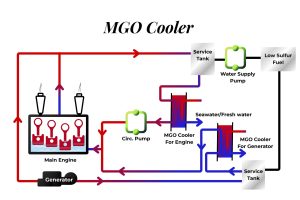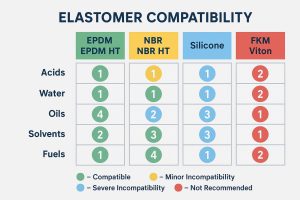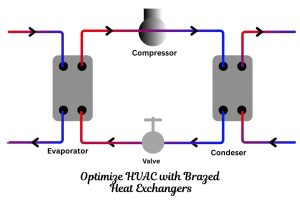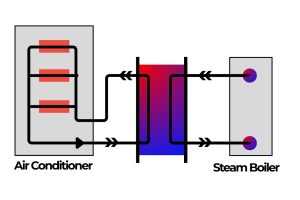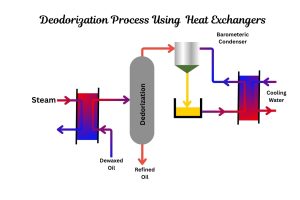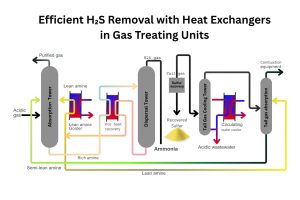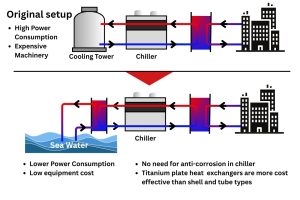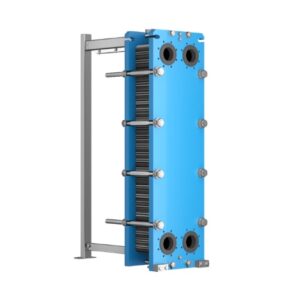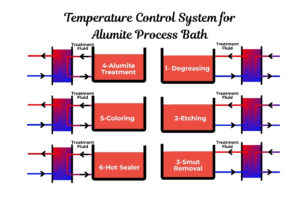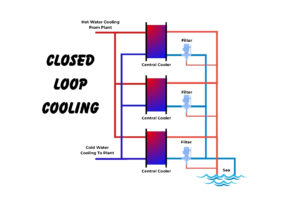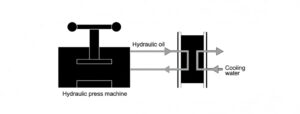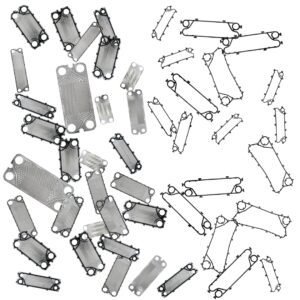Why Are Heat Exchangers Essential for Industrial Efficiency? 10 Key Benefits Explained
What Makes Heat Exchangers Vital for Industrial Operations?
Heat exchangers are unsung heroes in factories, power plants, and production lines. These devices quietly move heat between fluids, saving energy, cutting costs, and protecting equipment. But what exactly do they do, and why are they so important? Let’s break down the top 10 reasons industries rely on them.
How Do Heat Exchangers Boost Energy Efficiency?
Imagine reusing heat that would otherwise vanish into thin air. Heat exchangers capture wasted thermal energy—like steam from a machine or hot water from a process—and recycle it. This slashes energy bills and reduces reliance on extra fuel. For example, a factory might reuse heat from ovens to warm water for cleaning. The result? Lower costs and a smaller carbon footprint.
Tip: Wondering where to buy plate heat exchanger gaskets? Quality parts ensure your system runs smoothly.
Why Is Temperature Control Critical in Manufacturing?
From melting chocolate to cooling chemicals, precise temperature control is non-negotiable. Heat exchangers act like thermostats for fluids, keeping them at the perfect heat level. This prevents products from spoiling, machines from overheating, and processes from going off-track. Some say this precision is why industries like pharmaceuticals trust heat exchangers for sensitive tasks.
Can Heat Exchangers Reduce Environmental Harm?
Yes! By recycling heat, these devices shrink fuel use and greenhouse gas emissions. A power plant, for instance, might use a thermal transfer shell and tube heat exchanger to trap excess heat and convert it into extra power. This aligns with global pushes for greener factories and cleaner air.
Do Heat Exchangers Save Space and Money?
Unlike bulky alternatives, heat exchangers are compact and lightweight. This saves precious floor space in crowded facilities and cuts shipping costs. Their simple design also means fewer breakdowns. For example, welded PHE plate suppliers often highlight how their models fit into tight spots without sacrificing power.
Keyword Tip: Need brazed plate heat exchanger spare parts? Opt for durable, space-saving designs.
How Do Heat Exchangers Extend Equipment Life?
Machines hate overheating. Heat exchangers prevent this by maintaining steady temperatures, which reduces wear on parts. A high-pressure shell and tube heat exchanger, for instance, can handle intense conditions without cracking. This means fewer repairs, less downtime, and longer-lasting gear.
Question: What’s the cost of shell and tube heat exchangers replacement plates? It’s often lower than replacing entire systems!
HAre Heat Exchangers Versatile Across Industries?
Absolutely. They’re used in food processing, oil refining, HVAC systems, and more. A dairy might use custom-sized heat exchanger gaskets to pasteurize milk, while a chemical plant relies on thermal transfer models to cool reactions. This adaptability makes them a go-to tool for countless applications.
What Makes Heat Exchangers Cost-Effective?
They’re cheaper to run than most alternatives. By reusing heat, they trim energy bills by up to 40% in some cases. Plus, their low maintenance needs save time and labor. For example, swapping out PHE gaskets (learn how to replace PHE gaskets here) is simpler than fixing a broken boiler.
How Do Heat Exchangers Prevent Contamination?
In food or drug production, mixing fluids is a disaster. Heat exchangers keep fluids separate while transferring heat. A juice factory, for instance, might use plates made from the best materials for heat exchanger plates (like titanium) to avoid flavor crossovers.
Do Heat Exchangers Improve Workplace Safety?
Yes! Enclosed designs minimize leaks and spills, especially when handling dangerous chemicals. They also stabilize temperatures, preventing explosions or burns. Industries with strict safety rules, like oil refineries, depend on high-pressure shell and tube heat exchangers for this reason.
Can Heat Exchangers Recycle Waste Heat Quickly?
They’re speed demons at capturing and reusing heat. For example, a brewery might use a brazed plate model to instantly cool wort after boiling. This quick recovery means less energy waste and faster production cycles.
Tip: Looking for welded PHE plate suppliers? Prioritize those offering fast delivery and expert support.
Where Can You Find Reliable Heat Exchanger Solutions?
When it comes to quality, Heating Formula stands out. We supply heat exchangers tailored to industrial needs—from thermal transfer shell and tube models to custom-sized gaskets. Our products are built to last, ensuring your operations stay efficient and safe.
For more information about our products, click here.
Conclusion
Heat exchangers are the backbone of modern industry. They cut costs, protect equipment, and help the planet—all while fitting into tight spaces and adapting to countless tasks. Whether you need high-pressure systems or affordable replacement plates, understanding these benefits can transform your operations.
Final Tip: Always partner with trusted suppliers like Heating Formula for durable, compatible parts. From gasket compatibility checks to energy-saving designs, we’ve got your heat exchange needs covered.
Note: Struggling with gasket compatibility for Alfa Laval/SWEP/APV plate exchangers? Always match materials to your system’s needs.



